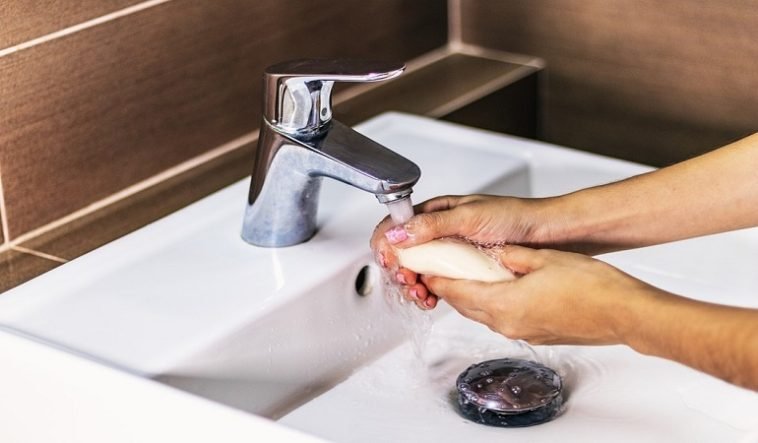A study published in The Lancet emphasizes the importance of handwashing even outside of pandemic periods to lessen the impact of common colds and flu in low- and middle-income countries. The research analyzed data from 160,000 people across three continents, emphasizing that handwashing is essential not just during pandemics.
Hygiene enthusiasm has waned since COVID-19 cases have decreased, but it remains crucial in combating everyday illnesses. The report’s findings should inspire renewed efforts to invest in and promote hand hygiene worldwide.
The study, partially funded by the Reckitt Global Hygiene Institute (RGHI), found that there is a missed opportunity to reduce respiratory disease by promoting hand hygiene practices even outside of pandemics. David Wheeler, Operations and Strategy Director of RGHI, stressed that hand hygiene should be a priority at all times, especially in the poorest countries where most deaths occur.
Acute respiratory infections (ARIs) are caused by viruses or bacteria and affect breathing. Examples include the common cold, influenza, and pneumonia. In 2019, ARIs were responsible for around 2.5 million deaths worldwide, with over 80% occurring in low and middle-income countries.
The research team, comprised of experts from the London School of Hygiene & Tropical Medicine, the World Health Organization, and other universities, analyzed 26 studies on the effects of handwashing promotion in domestic, school, or childcare settings in low and middle-income countries. The studies involved 160,000 participants from Asia, Africa, and Latin America between the early 2000s and May 2021.
The analysis found that promoting handwashing with soap reduced ARI morbidity by 17% compared to when no handwashing intervention was implemented. The study’s results highlight the potential impact of sustained government action promoting handwashing and providing access to water supply and soap.
Despite the emphasis on handwashing during the COVID-19 pandemic, researchers found that handwashing campaigns during normal times are rare, even though they are essential in preventing various illnesses, including gastrointestinal infections and norovirus, in addition to ARIs.
David Wheeler urged renewed efforts to invest in and promote hand hygiene globally, stating that better hygiene would lead to fewer cases of illness and death while also supporting economies weakened by the COVID-19 pandemic and other global events. The RGHI aims to generate research on hygiene behaviors and their impact to help leaders make evidence-based decisions for public health.
In the study, researchers called for decision-makers to promote handwashing more widely and invest in water supply and handwashing facilities. The paper contributes to the Lancet Commission on Water, Sanitation, and Hygiene (WASH) and Health, involving experts from the London School of Hygiene & Tropical Medicine.
Islam have told hundreds of years ago the benefits of personal hygiene which the modern sciences is unveiling now a days. Cleanliness holds great significance in Islam and is considered an essential aspect of a Muslim’s life. It is not only related to physical cleanliness but also spiritual and moral purity. Islam emphasizes the importance of maintaining personal hygiene and cleanliness in the environment to ensure good health and well-being. Some key aspects of cleanliness in Islam include:
Purification (Taharah): Purification in Islam is the process of cleaning oneself from physical and spiritual impurities. It is divided into two categories: major purification (ghusl) and minor purification (wudu). Ghusl is the complete washing of the body and is required after certain events, such as sexual intercourse, menstruation, or childbirth. Wudu is a ritual washing of specific body parts (face, hands, arms, head, and feet) before performing prayers (salat) or other religious activities.
Cleanliness in daily life: Islam encourages Muslims to maintain personal hygiene by regularly washing their hands, bathing, brushing their teeth, and trimming their nails. The use of a miswak (a teeth-cleaning twig) is recommended for oral hygiene.
Cleanliness of clothing: Muslims are required to wear clean and modest clothing, particularly during prayers. It is essential to ensure that one’s clothes are free from impurities and dirt.
Cleanliness in the environment: Islam emphasizes keeping the environment clean and not causing harm to nature. Muslims are encouraged to maintain cleanliness in their homes, streets, and public spaces. Littering, polluting water sources, or causing harm to animals and plants is discouraged.


